- Agriculture and Food Security
- Industrial Biotechnology and Bioenergy
- Bioscience for Health
- World Class Underpinning Bioscience
***
Agriculture and Food Security
Yana Aleksandrova (Roslin, Edinburgh)
Project title: The neuroendocrine and genetic control of maternal behaviour in the domestic hen
Carola Dehler (Aberdeen)
Project title: Gut health and nutrition in Atlantic salmon (Salmo salar)
Personal note: Hi, my name is Caro and I moved from Bavaria to Aberdeen in 2008 to start my undergraduate studies here. All my practical projects were focussed on fish physiology and I graduated in 2013 with MSci in Biological Sciences. My main scientific interest is fish biology as this is an amazingly diverse group of vertebrates and so little is known about them in general, especially when it comes to their genetics and physiology. During my undergrad studies I became more and more interested in applied research related to aquaculture and how we can meet the biological needs of the fish through high welfare standards and sustainability. Therefore I counted myself lucky indeed to get a PhD position in the exciting field of fish nutrition and health with the same research group that supported me throughout my undergrad projects. Specifically, I am looking at the interaction between Atlantic salmon gut physiology and transcriptomics and its gut microbes when exposed to different environmental stimuli, be that transfer from freshwater to seawater or the under the influence of different diets. Most of my time I spend in the lab - but now and again I am treated to a visit to the fish farms at the beautiful Westcoast. In my spare time I love being outdoors, either on my bike or hillwalking.
Fulvia Draicchio (Dundee)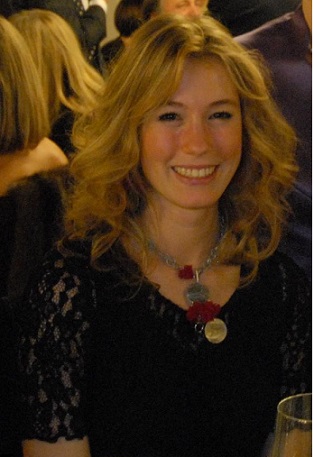 Project title: Using a barley Nested Association Mapping population to mine wild barley germplasm for crop improvement
Project title: Using a barley Nested Association Mapping population to mine wild barley germplasm for crop improvement
Personal note: Hello! I’m Fulvia, and I’m currently a PhD student at the University of Dundee, College of Life Sciences. The general aims of my project address the use of exotic QTL alleles from wild barley to extend the biodiversity of the elite barley and the development of new cultivars with enhanced environmental robustness. To achieve this, I am following two different strategies involving peri-centromeric (PC) substitution line development, as well as association analysis of the whole HEB-25 population, respectively, designed to search for useful new wild-derived alleles, focusing on both the whole genome and the PCH regions which show the most acute problem with low diversity in current breeding materials. In my spare time I love to run, lift and snowboarding, as well as read sci-fi books and drawing comics.
 Martha Gavan (Aberdeen)
Martha Gavan (Aberdeen)
Project title: Parallel evolution for genomic diversity in insular populations -- implications for zoonotic disease spread
Personal note: Hello! I am currently studying for my PhD at the University of Aberdeen and am funded by the EASTBIO BBSRC doctoral training partnership. My current research involves using next-generation sequencing techniques, specifically genotyping-by-sequencing (GBS), to identify genomic variation in genetically depauperate island populations of water voles and rats. I’m aiming to use GBS data to characterise the patterns of genetic structure and pinpoint the regions of the genome that are displaying significantly higher sequence diversity than predicted by the genomic background. These “diversity islands” will highlight the genomic regions that are acting in a non-neutral way, and comparison across populations provides insight into the extent to which parallel or convergent responses occur. If you have any questions please feel free to get in touch.
 Georgina Glaser (St Andrews)
Georgina Glaser (St Andrews)
Project title: Determining the mechanisms of irrational decision-making
Personal note: My PhD is on context-dependent decision making in hummingbirds and parasitic wasps. I currently live in Dundee and moved here from Belfast after finishing my Master's degree in Animal Behaviour and Welfare at Queen's University. Before that I lived in Cardiff, where I attended the University of Glamorgan and completed my undergraduate degree in International Wildlife Biology. In 2013-2014 I was EASTBIO student rep for St Andrews.
 Franziska Jaeger (Dundee)
Franziska Jaeger (Dundee)
Project title: Investigating the organisation of the membrane proteins of the ESX-1 protein secretion system in S. aureus
Personal note: Hi there! I am based in the EASTBIO food security scheme and currently undertaking my PhD at the University of Dundee. My project aims to derive fundamental knowledge about the organisation of the membrane proteins of the Type VII / ESX-1 protein secretion system in S. aureus. The function of the Type VII protein secretion system and its secreted proteins in S. aureus are unknown, but have been implicated in the formation and persistence of staphylococcal abscesses, nasal colonisation and virulence in the murine lung pneumonia model. In addition to being an opportunistic human pathogen, S. aureus is also a big problem in agriculture as it is one of the most common bacteria to cause contagious mastitis in cattle. A good balance to all the lab work is my kickboxing training and in my spare time I enjoy to travel and going on hiking trips.
Chris Johnston (Aberdeen)
Project title: The mechanism and functional significance of spliced-leader trans-splicing in nematodes
Personal note: Hi, my name is Chris Johnston and I’m a PHD student working in the Institute of Medical Sciences at the University of Aberdeen. My EASTBIO project is in the Food Security theme, looking at a mechanism called spliced leader RNA trans-splicing in nematodes. This is an unusual mechanism that appears to be ubiquitous in nematodes but doesn’t occur in any vertebrate or plant species, so we’re studying it with the aim of using it to target a range of nematode parasites with a single drug that will not harm the host at all. I achieved my undergraduate degree in Biological Sciences at Heriot-Watt University and in my spare time, I enjoy running, swimming and particularly driving, as well as films, video games and reading whenever I can find a spare moment at the end of the day.
Publication during my PIPS at the Scottish Government on adolescent smoking; it got picked up at the national news.
Jennifer Harbottle (Aberdeen)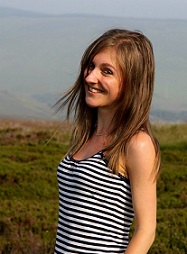 Project title: The environmental stress response as a target for therapeutic intervention
Project title: The environmental stress response as a target for therapeutic intervention
Personal note: I am passionate about nutrition, specifically research pertaining to nutrigenetics and epigenetics. My undergraduate degree in Nutrition and Dietetics allowed me to recognise the need for developing strategies and products that target disease and improve health in a more personalised manner. My interest in the intricacies that link nutrients, genes and chronic pathologies led me to study for an MSc in Molecular Nutrition, and enabled me to gain insight into the mechanisms involved, and the pathways that can be targeted by therapeutic intervention. My work towards a PhD in Human Nutrition now aims at developing cell-based assay systems to identify and characterise natural chemicals that stimulate the environmental stress response. Such compounds would allow for the development of a novel class of therapeutic interventions which could stimulate endogenous cytoprotective mechanisms and potentially delay the onset of age-related disease, extend health span, and promote healthy ageing.
Sarah Heath (Edinburgh)
Project title: The role of viral infection and resistance in adaptation in Ostreococcus tauri
Personal note: Hi I'm Sarah and I am a PhD student at the University of Edinburgh. I am interested in factors which affect susceptibility and resistance of the picoeukaryote Ostreococcus tauri to viruses. During my PhD I will be examining virus infection under different environmental conditions and different evolutionary histories.
Heather Mathie (Roslin, Edinburgh)
Project title: Defining mycobacteria-specific responses in macrophages: Towards identification of targeted approaches for disease control
Personal note: I am currently a second year Eastbio student at the Roslin Institute in Edinburgh, supervised by Dr J. Hope, Prof. E. Glass and Dr Jo Stevens. My PhD project is entitled “Defining Mycobacteria Specific Responses in Macrophages: Towards Identification of Targeted Approaches for Disease Control”. This research falls under the Food Security research theme and focuses on elucidating early interactions between the host and Mycobacterium avium subsp. paratuberculosis (MAP). MAP is the causative agent of Johne’s disease, a chronic inflammatory disease of the intestine which is detrimental to the livestock industry. MAP is known to be capable of surviving within innate immune cells known as macrophages which are usually able to destroy invading pathogens through phagocytosis; however, the interaction between the macrophage and MAP is not yet fully understood. Early host-pathogen interactions are likely to influence the outcome of infection and a better understanding of early events will likely be valuable in the development of novel diagnostics and vaccines.
Mark Moseley (Aberdeen) Project title: The molecular epidemiology of leptospirosis in Madagascar
Project title: The molecular epidemiology of leptospirosis in Madagascar
Personal note: I am a PhD student at the School of Biological Sciences at the University of Aberdeen. I am studying the epidemiology of leptospirosis, one of the world’s most neglected zoonotic diseases. The project is based in Madagascar to enable us to study the factors influencing the transmission of diseases between wildlife reservoirs, humans and livestock in a region of changing biodiversity. I qualified as a veterinary surgeon in South Africa and have worked as a large animal vet for 9 years. During this time I completed an MPhil degree in wildlife management by correspondence. My research focussed on louping-ill virus transmission between various wildlife hosts, sheep and red grouse and resulted in three publications. I have two toddlers so spare time is a distant memory but when I do get some free time I enjoy fishing, walking or sleeping.
Fraser Murphy (Dundee)
Project title: Effector-mediated virulence of enterobacterial soft-rot plant pathogens
Douglas Pyott (Edinburgh)
Project title: Environmental influences on Potyvirus infection in model and crop plants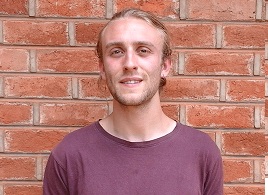 Personal note: I have a joint studentship between the University of Edinburgh and the James Hutton Institute (JHI) in Invergowrie, though I spend the majority of my time at Edinburgh University. My project is concerned with environmental effects on viral infection in plants. Specifically, I'm interested in how environmental stimuli such as light and temperature influence plants' antiviral RNA silencing responses. Outside of the lab I enjoy playing music, basketball and outdoor activities like kayaking and hill walking.
Personal note: I have a joint studentship between the University of Edinburgh and the James Hutton Institute (JHI) in Invergowrie, though I spend the majority of my time at Edinburgh University. My project is concerned with environmental effects on viral infection in plants. Specifically, I'm interested in how environmental stimuli such as light and temperature influence plants' antiviral RNA silencing responses. Outside of the lab I enjoy playing music, basketball and outdoor activities like kayaking and hill walking.
Research outputs:
- Interaction of light and temperature signalling (2014), Journal of Experimental Botany
- Going mobile: Non-cell autonomous RNAs shape the genetic landscape of plants (2015), Plant Biotechnology Journal
Honours/prizes:
2014:
J. Colhoun poster prize at the British Society of Plant Pathology (BSPP) presidential meeting.
Poster prize at the Edinburgh University small RNA meeting.
2013:
- T.E. Wood prize for highest ranking student in the department of plant sciences, University of Cambridge.
- Selwyn College Melbourne prize
- Selwyn College Scholar award
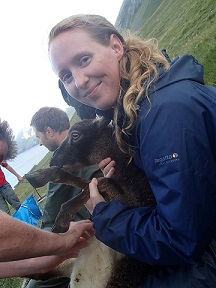 Charlotte Regan (Edinburgh)
Charlotte Regan (Edinburgh)
Project title: Maternal and offspring effects on growth in sheep
Personal note: Hi! I'm Charlotte, and I’m currently studying for my PhD at the University of Edinburgh as part of the EASTBIO doctoral training partnership. During my project I'll be attempting to understand how variation in environmental conditions and individual characteristics impact the relationships between mothers and offspring, and what effect this has on the growth, survival and future reproduction of individuals. I'll be using the St. Kilda population of Soay sheep as my study system, braving all that the Scottish weather has to throw at me to collect behavioural data on the interaction of ewes and lambs in order to understand the causes and consequences of variation in maternal investment. When I'm not working I love to get outdoors, exploring Edinburgh and beyond. I also love to fit in some horse riding where I can as it’s great fun and also a brilliant source of stress-relief when feeling a bit snowed under with work.
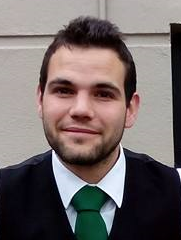 Angus Reid (Roslin, Edinburgh)
Angus Reid (Roslin, Edinburgh)
Project title: Understanding how domestication has altered growth utilising a chicken line segregating for a mutation affecting satiety
Personal note: I’m currently working to characterise the regulation of feed intake in chickens at the Roslin Institute (University of Edinburgh). The main aim of my project is to investigate a genetic phenomenon affecting a satiety receptor which has been historically selected in meat chickens. Understanding the molecular mechanisms underlying selection for fast-growing individuals is useful in improving management and informing breeding strategy for the global poultry industry.
Aside from research, I enjoy water sports and have volunteered at Longcraig Scout Centre for over a decade, where I currently instruct kayaking to kids aged 8-17. I also enjoy land-based outdoor activities, particularly Munro-bagging and road cycling. I work casual hours as a Quizmaster for the student union.
Research output: Please see Research Gate: https://www.researchgate.net/profile/Angus_Reid2
Honours/prizes:
2015: President’s Prize at the World Poultry Science Association annual conference in Chester.
Industrial Biotechnology and Bioenergy
Richard Brewster (Edinburgh)
Project title: A pre-targeting approach to understanding the intracellular mechanisms of inflammation
Megan Doble (St Andrews) Project title: Artificial Metalloenzymes as catalysts for Oxidative Lignin Degradation
Project title: Artificial Metalloenzymes as catalysts for Oxidative Lignin Degradation
Personal note: I am currently studying for my PhD at University of St Andrews as part of the EASTBIO doctoral training partnership. For my PhD I am interested in looking into the degradation of lignin for the production of low molecular weight aromatic compounds, which could be used as renewable source for a wide variety of chemicals. In particular utilizing artificial metalloenzymes for this process, these combine the recognition properties of enzymes with synthetic transition metal co factors. I am originally from Bristol and I did my MChem in Chemical Biology at the University of Leicester, in my spare time I enjoy music and socialising.
Sybille Mittmann (Dundee)
Project title: The control of meiosis and recombination in barley
Julian Pietrzyk (Edinburgh)
Project title: Use of Microbial Consortia for Conversion of Biomass Pyrolysis Liquids into Value-Added Products under Aerobic and Anaerobic Conditions
Personal note: Hey! I’m Julian and I’m an EASTBIO PhD student in the Institute of Cell Biology at the University of Edinburgh. During my four year stint I’ll be looking into how we can utilise micro-organisms to create value-added products for the growing world economy, particularly chemicals and fuels converted from waste biomass -- a particularly green endeavour!
Laura Tuck (Edinburgh)
Project title: Engineering bacterial microcompartments as platforms for synthetic biology
Personal note: My name is Laura and I’m a second year PhD student in Dr. Jon Marles-Wright’s lab. I completed my undergraduate degree in Medical Microbiology and Immunology at Newcastle University and then moved into industry, working in a food testing microbiology lab. My project uses structural biology, biochemistry and cell biology techniques to understand the structure and function of Bacterial Microcompartments (BMCs) - proteinaceous, organelle-like structures that can be found in many different bacteria and whose function is to encapsulate enzymes needed for metabolism and to protect the cell from the toxic intermediates formed from this process. I’m interested in the determination of the basis for the recruitment and encapsulation of proteins within BMCs and using DNA assembly methods to optimise the construction of recombinant compartments.
Bioscience for Health
Michael Curley (Edinburgh)
Project title: Establishing the Cause-Consequence Relationship between the Age-Related fecline in Androgens and the Normal Ageing Process
Personal note: I am carrying out my PhD studies in Professor Lee Smith’s group in the MRC Centre for Reproductive Health at the University of Edinburgh. The main focus of my project is on the cells in the testes (Leydig cells) that make androgens (e.g. testosterone). I’m interested in (i) how Leydig cells in the adult testis develop; (ii) factors that influence their function and; (iii) the mechanism(s) which lead to their functional decline (testosterone production) as men age. When I’m not at the bench I like to get outdoors and take in the fresh air! I enjoy playing music, cooking and catching up with friends and family.
Laura Graham (Roslin, Edinburgh)
Project title: Mitochondria and synaptic stability
Cara Green (Aberdeen)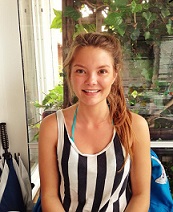 Project title: Metabolomic analysis of the response to graded caloric restriction
Project title: Metabolomic analysis of the response to graded caloric restriction
Personal note: I am a researcher in the Zoology department at the University of Aberdeen, where I study the effects of graded calorie restriction on the metabolome. We use calorie restriction as a platform to study healthy ageing, and to detect changes in the metabolome between healthy and unhealthy phenotypes. I am also a keen writer, completing my PIPs last summer in the publishing department at The Royal Society and continuing my role this year as Editor-in-Chief of Aberdeen University’s Science Magazine.
Audrey Henderson (St Andrews) Project title: Skin carotenoids and immune system function
Project title: Skin carotenoids and immune system function
Personal note: I’m Audrey and I study skin carotenoids and immune function in the School of Psychology and Neuroscience at the University of St Andrews. Carotenoids are a group of red-yellow pigments in fruits and vegetables which add colour to your skin, giving a healthy glow which other people perceive as more healthy and attractive looking. My PhD aims to test whether this colour is actually a valid indication of general health beyond fruit and vegetable consumption. For example I would test whether people with more of this pigment get sick less often. Before my PhD I graduated top of my class in Psychology at the University of Dundee in 2013. During my PhD so far I have been fortunate enough to form international collaborations and work with the BBC on a dissemination project. As part of the EASTBIO training programme I will be spending 3 months interning with NHS Health Scotland.
Jilly Hope (Edinburgh)
Project title: The effects of ageing on translation elongation factor isoforms
Personal note: I am originally from a small town called Dumfries in the south of Scotland, but moved up to Fife when I was nine years old, a county located just outside Edinburgh. I subsequently moved to Edinburgh and studied my undergraduate degree in Neuroscience at Edinburgh University before completing master’s degree in Integrative Neuroscience at the same institution. I am currently studying my PhD at the Institute of Genetics and Molecular Medicine, which is also part of Edinburgh University. My project is to investigate the role of the eEF1A2 protein, which is involved in mRNA translation, in ageing, epilepsy and intellectual disability. This is part of the EASTBIO Ageing theme group. I also have two publications in PloS Genetics and was recently invited to speak at the Genetics Society Autumn Meeting in London.
Gemma McGregor (Dundee)Project title: Age-dependent regulation of hippocampal synaptic function by leptin
Personal note: I graduated from the University of Dundee with a degree in Neuroscience before undertaking a PhD at the same university as part of the EASTBIO doctoral training partnership. The focus of my project is understanding how the hormone leptin can modulate hippocampal synaptic function and thereby influence learning and memory during development and ageing. Using electrophysiological techniques I am specifically looking at the temporoammonic input in the hippocampus as this has been linked to memory as well as neurodegeneration in Alzheimer’s disease. Therefore my project falls into the ‘Basic Bioscience Underpinning Health (Ageing) category. As part of the EASTBIO Professional Internships scheme (PIPS) I will be spending three months of my PhD at the pharmaceutical company Takeda in Cambridge. I hope this will give me an insight into science within industry out with the world of academia.
Joshua Moatt (Edinburgh)
Project title: The within individual and cross-generational effects of dietary restriction on rates of ageing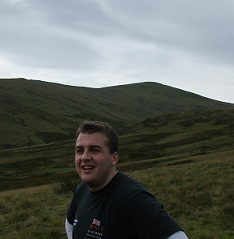 Personal note: I am a member of the Walling lab based in the Institute of Evolutionary Biology at the University of Edinburgh. I previously attended The University of York where I carried out both my undergraduate studies and an MSc (by research). My MSc, with Dr Michael Thom and Professor Calvin Dytham, focused on the lifespan reproduction trade-off of mounting plastic responses to sperm competition in Drosophila melanogaster. I have continued to focus on reproductive trade-offs through my PhD. My project uses first generation offspring of wild caught three-spine sticklebacks to explore the effect of dietary restriction on a number of life-history traits. In particular, how macronutrient ratios affect the longevity reproduction trade-off. As a keen rugby player, I spend most of my Saturdays captaining a local Edinburgh team.
Personal note: I am a member of the Walling lab based in the Institute of Evolutionary Biology at the University of Edinburgh. I previously attended The University of York where I carried out both my undergraduate studies and an MSc (by research). My MSc, with Dr Michael Thom and Professor Calvin Dytham, focused on the lifespan reproduction trade-off of mounting plastic responses to sperm competition in Drosophila melanogaster. I have continued to focus on reproductive trade-offs through my PhD. My project uses first generation offspring of wild caught three-spine sticklebacks to explore the effect of dietary restriction on a number of life-history traits. In particular, how macronutrient ratios affect the longevity reproduction trade-off. As a keen rugby player, I spend most of my Saturdays captaining a local Edinburgh team.
Research outputs:
- Moatt JP, Dytham C & Thom MDF 2013 Exposure to sperm competition risk improves survival of virgin males. Biology Letters 9: 20121188
- Moatt JP, Dytham C & Thom MDF 2014 Sperm production responds to perceived sperm competition risk in male Drosophila melanogaster. Physiology & Behaviour 131: 111-114
- Moatt JP, Nakagawa S & Walling CA 2015 The effect of dietary restriction on reproduction: a meta-analytic prospective. In Prep
- Scottish Conference for Animal Behaviour (SCAB) 2014 – Speaker
Hiu Gwen Tsang (Edinburgh) Personal note: I am currently doing a PhD on “Investigating patterns of gene expression in the mammalian cardiovascular system”. Briefly, I’m aiming to identify the location and functional networks of specific genes expressed in the cardiovascular system. My genes of interest are involved in the either inhibiting or promoting the pathological process of vascular calcification. In short, this is where processes similar to bone formation occur in the cardiovascular system, which can be a progressive problem as we age, or may cause childhood death in a rare, severe condition called Generalised Arterial Calcification of Infancy (GACI). I will also be involved in generating large animal models of cardiovascular disease using the novel TALEN and CRISPR/Cas9 technologies, in order to better understand the roles of key genes in the progression of cardiovascular disease.
Personal note: I am currently doing a PhD on “Investigating patterns of gene expression in the mammalian cardiovascular system”. Briefly, I’m aiming to identify the location and functional networks of specific genes expressed in the cardiovascular system. My genes of interest are involved in the either inhibiting or promoting the pathological process of vascular calcification. In short, this is where processes similar to bone formation occur in the cardiovascular system, which can be a progressive problem as we age, or may cause childhood death in a rare, severe condition called Generalised Arterial Calcification of Infancy (GACI). I will also be involved in generating large animal models of cardiovascular disease using the novel TALEN and CRISPR/Cas9 technologies, in order to better understand the roles of key genes in the progression of cardiovascular disease.
World Class Underpinning Bioscience
Anna Ashton (Aberdeen)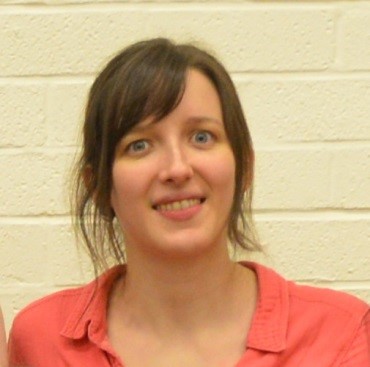 Project title: A new function for the pineal gland and control of nightly melatonin rhythm
Project title: A new function for the pineal gland and control of nightly melatonin rhythm
Personal note: I’m doing a PhD at the Institute of Medical Sciences at the University of Aberdeen looking at the role of retinoic acid in the pineal gland. Retinoic acid is the active metabolite of vitamin A and a potent regulator of gene transcription in the brain. I’m investigating whether it helps to regulate the nightly production of melatonin in the pineal gland. Melatonin is a broadly acting hormone and changes in its production and signalling are associated with a number of diseases, including type 2 diabetes and breast cancer. Before coming to Aberdeen I studied Neuroscience at the University of Bristol. As part of my degree I succeeded in securing a Year in Industry with Pfizer, where I worked for a year in the Molecular and Cellular Biology group.
Simone Bertolini (Dundee) Project title: Defining mutational signatures of DNA damaging agents using Caenorhabditis elegans
Project title: Defining mutational signatures of DNA damaging agents using Caenorhabditis elegans
Personal note: Hello! I am Simone Bertolini, EASTBIO PhD student at the College of Life Sciences, University of Dundee. I began my studies in Molecular Biology at the University of the Study of Padua, Italy, where I got both my bachelor and master degree. I have spent the second year of my master at the Université Paris Diderot, France, learning how to handle the model organism I am currently working with, the nematode Caenorhabditis elegans. In 2013, I joined the Anton Gartner lab as a PhD student to study how mutational processes affect the stability of the genome. Exploiting the useful features of C. elegans, the aim of my project is to establish how cells counteract different genotoxins in order to preserve the genetic information they carry and to discover new genes involved in DNA repair.
Emma Bissett (Dundee) Project title: Integrating divergent behaviours within a bacterial population
Project title: Integrating divergent behaviours within a bacterial population
Personal note: Hello! I’m Emma, a 2nd year EASTBIO PhD student from the Molecular Microbiology (MMB) division here at the University of Dundee. I decided to remain in Dundee having completed my undergraduate degree in Microbiology here in 2013. My project falls under the EASTBIO world class underpinning bioscience theme and aims to investigate how the soil bacterium Bacillus subtilis is able to form complex social communities, or biofilms, on the roots of plants. We are particularly interested in this process as these interactions can be extremely beneficial to the plant, promoting plant growth and protecting the plant from infection by pathogens. Outside of the lab I enjoy playing table tennis for a team in the local Dundee league, supporting my favourite ice hockey team (the Fife Flyers) and spending time with my friends and family.
Natalia Brodaczewska (Edinburgh)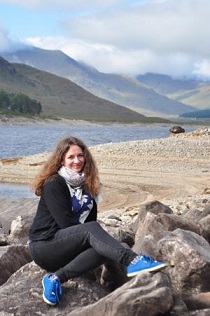 Project title: Development of NMR tools for structural studies of Sulfated Polysaccharides isolated from marine organisms and their interactions with selectins
Project title: Development of NMR tools for structural studies of Sulfated Polysaccharides isolated from marine organisms and their interactions with selectins
Personal note: Hi there! I’m a PhD student from the EastBio’s second cohort. My project is based at the University of Edinburgh and, so far, the main focus of it has been the expression of selectins – cell-surface proteins involved in the cell adhesion. Eventually I’d like to use NMR to see how these proteins interact with oligosaccharides obtained from the sea cucumbers. I’d like to understand the binding mechanisms that lead to the exciting biological properties of these molecules, giving the basis to their anti-inflammatory, anticoagulant, antimetastatic and anti-HIV activity. I work on my project in collaboration with Glycomar, a biotech company based in the beautiful town of Oban, where I sometimes get to go and learn about extracting and purifying oligosaccharides from the marine organisms. I spend most of my free time with my violin, practicing, teaching or performing with various music groups such as the Scottish Sinfonia. When I’m not playing music, you can find me in a coffee shop, in a pub with friends or in my living room, enjoying a new box of jigsaw puzzles and catching up on my favourite TV shows.
Elliott Chapman (Edinburgh)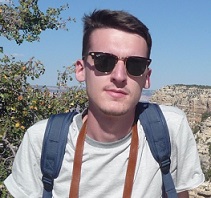 Project title: Investigating mechanism and function of RNA interference across fission yeast species
Project title: Investigating mechanism and function of RNA interference across fission yeast species
Personal note: My name is Elliott and I’m a PhD student in the lab of Dr Elizabeth Bayne at the Institute of Cell Biology, The University of Edinburgh. I completed a four-year Sandwich degree at the University of Sussex, undertaking a placement year within Protein Sciences (Oncology) at MedImmune, Cambridge. It was during my studies that I developed an interest in chromatin organisation; my honours project utilised the fission yeast Schizosaccharomyces pombe as a model to look at changes in histone modifications in response to DNA damage. Upon moving to Edinburgh I began a project that aims to investigate the mechanism and function of RNA interference across a number of fission yeast species.
Kara Dicks (Edinburgh)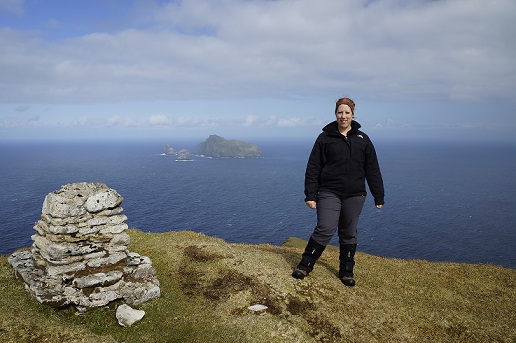 Project title: Unravelling the disease and fitness consequences of MHC diversity in a uniquely well-characterised sheep population
Project title: Unravelling the disease and fitness consequences of MHC diversity in a uniquely well-characterised sheep population
Personal note: I am investigating the evolutionary processes underlying variation at the major histocompatibility complex in Soay sheep (Ovis aries). The unmanaged population of Soay sheep on St. Kilda have been studied since 1985, and an excellent database now exists, including measures of fitness and parasite burden. Using genotyping by sequencing methodologies developed for domestic sheep, I am characterising the MHC variation across class I and class II loci. I then intend to investigate associations between MHC diversity and fitness measures, and identify mechanisms of selection operating to maintain high levels of variation.
Laura Glendinning (Edinburgh)
Project title: Postnatal development of the lung microbiome
Personal note: Hi! I am currently studying at the Roslin Institute (University of Edinburgh) and my project is part of the EASTBIO World Class Underpinning Bioscience BBSRC Strategic Priority Area. My PhD is looking at the bacteria which inhabit healthy sheep lungs, referred to as the ‘Lung Microbiota’. Until recently very little research had been done in this area as it was thought healthy lungs were completely sterile. However, through the use of molecular techniques this has been shown to not necessarily be the case. Before starting my PhD I completed a Masters by Research where I studied the impact of treating for schistosomiasis infection on children’s gut bacteria. In my spare time I like board/card/video gaming; watching a large amount of films; playing ping pong and reading.
Daniel Kaemena (Edinburgh)
Project tile: Illuminating and overcoming hurdles in the IPS cell generation to improve reprogramming technology
Emily Wheeler (Dundee)
Project title: How is non-genic transcription of RNA controlled in plant genomes?











